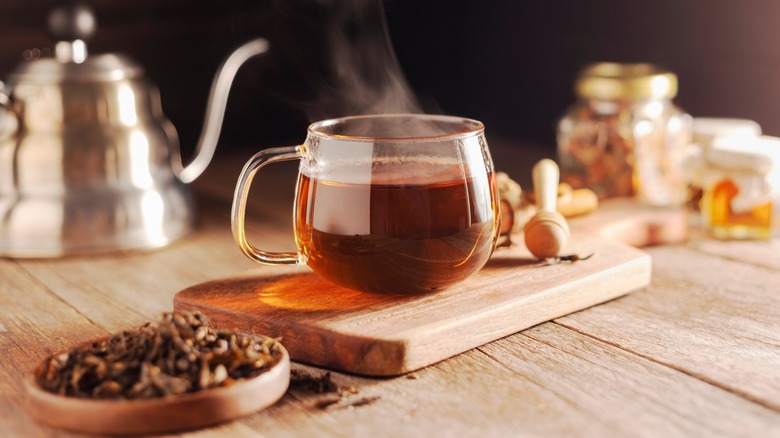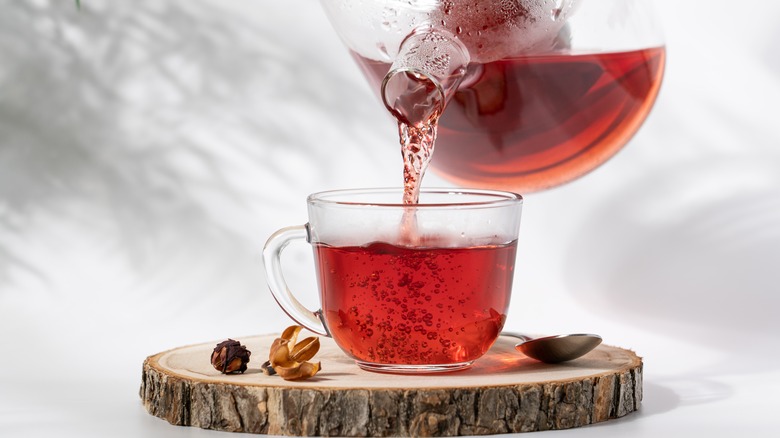The US And Britain Are Having Yet Another Heated Disagreement Over Tea
As if the Boston Tea Party wasn't enough, the U.S. and Britain are once again having a salty debate over tea, literally this time. Professor Michelle Francl, a chemistry professor at Bryn Mawr College and author of a new book, "Steeped: The Chemistry of Tea," has stirred up a transatlantic debate with a suggestion on how to temper the bitterness of tea: adding a pinch of salt to your hot tea. Apparently, not only does salt work wonders over our fries and bland chicken breasts, but now it has a place in our afternoon cuppa.
Professor Francl explained that subtle salinity can reduce tea's bitterness and make it go down smoothly. Once publicized, this tea hack left Brits reeling. In an X (formerly Twitter) post, Good Morning Britain cheekily responded, "This feels like a crime." On the show, the anchors called this tip "absolute craziness" and stated that an American can't be a tea expert. Yet, in a world where Tibetan butter tea includes salt, perhaps the idea isn't so far-fetched.
In China, where all tea originated, the people of Shanwei serve salted tea. Sakura (or cherry blossom) tea is also known to be salty in Japan. And recently, Taiwan introduced the world to salted cheese foam on boba tea. The practice of salting our tea, as much as the British balk at this idea, is here to stay. So, perhaps an American chemist can teach the British — the stalwarts of tea tradition — something new about their beloved national brew after all.
Professor Francl steeps in success amidst transatlantic tensions over salted tea
To defuse the brewing tension after Professor Michelle Francl's salty suggestion, the U.S. Embassy in London humorously expressed solidarity with Britain in a playful X (formerly Twitter) post, stating, "The unthinkable notion of adding salt to Britain's national drink is not official United States policy. And never will be." However, the U.S. Embassy also stated that Americans would continue to microwave their tea. We at Tasting Table are unsure how this will all play out — and whether or not the British and Americans will ever get oolong over tea again.
In this kettle of flavorful controversy, it seems that Professor Francl is enjoying the last laugh. Her new book "Steeped: The Chemistry of Tea" is already steeping in success, slated to be a bestseller on Amazon. So, as Britain and the U.S. debate over the perfect cup of tea, it appears that Francl has already served hers — with a pinch of salt, warm milk, and a generous helping of free publicity. In the end, while the debate over tea traditions may continue to infuse, one thing is for sure: When it comes to stirring up a media and tea storm, Professor Francl knows her brew!

